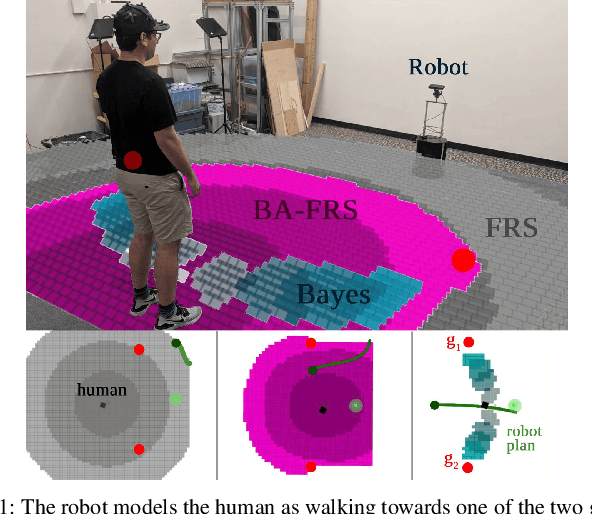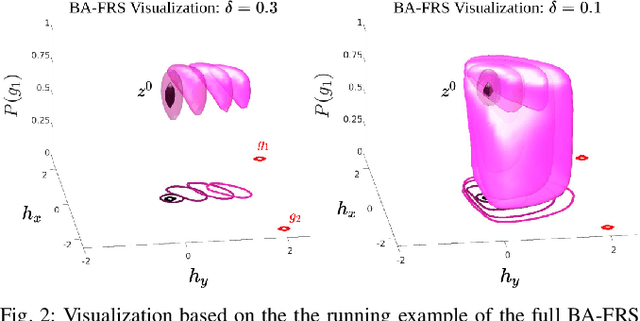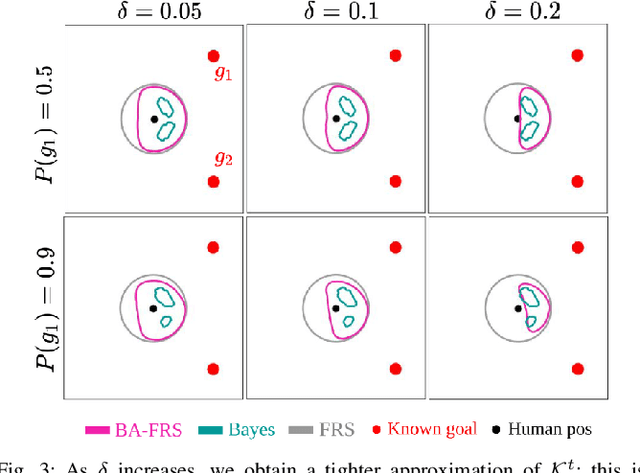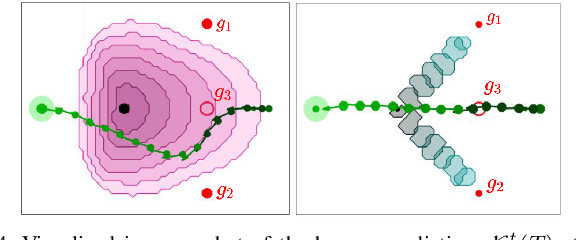A Hamilton-Jacobi Reachability-Based Framework for Predicting and Analyzing Human Motion for Safe Planning
Paper and Code
Oct 29, 2019



Real-world autonomous systems often employ probabilistic predictive models of human behavior during planning to reason about their future motion. Since accurately modeling the human behavior a priori is challenging, such models are often parameterized, enabling the robot to adapt predictions based on observations by maintaining a distribution over the model parameters. This leads to a probabilistic prediction problem, which even though attractive, can be computationally demanding. In this work, we formalize the prediction problem as a stochastic reachability problem in the joint state space of the human and the belief over the model parameters. We further introduce a Hamilton-Jacobi reachability framework which casts a deterministic approximation of this stochastic reachability problem by restricting the allowable actions to a set rather than a distribution, while still maintaining the belief as an explicit state. This leads to two advantages: our approach gives rise to a novel predictor wherein the predictions can be performed at a significantly lower computational expense, and to a general framework which also enables us to perform predictor analysis. We compare our approach to a fully stochastic predictor using Bayesian inference and the worst-case forward reachable set in simulation and in hardware, and demonstrate how it can enable robust planning while not being overly conservative, even when the human model is inaccurate.
 Add to Chrome
Add to Chrome Add to Firefox
Add to Firefox Add to Edge
Add to Edge